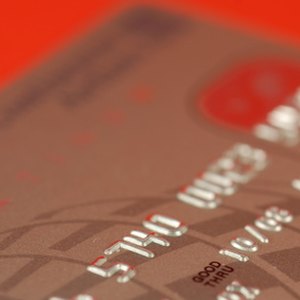
You went to the grocery store and the gas station, picked up lunch at a fast-food restaurant and got money from the ATM down the street, all using your debit card. When you checked your bank account balance, it was lower than you thought it should be. Or maybe you noticed a charge at the beginning of the month for your bank account and you have no idea why.
Most of the cards attached to checking and savings accounts from a bank do not charge fees. However, a debit card that isn’t attached to a particular bank might have many fees that you might not even know about. When choosing a debit card, you should examine any and all fees that the card comes with. Not all debit cards are equal.
What Is a Debit Card?
A debit card is a card that a person can use to access money in a checking or savings account. Most banks offer a debit card free of charge when you open an account. Debit cards can be used at ATMs to withdraw cash, online to make purchases from websites and at stores where debit cards are allowed.
Types of Debit Cards
Basically, there are two types of debit cards, regular and prepaid. A regular debit card is attached to a person's checking or savings account. It normally has a Visa or MasterCard logo and can be used at stores that accept debit and credit cards. For example, if you have a bank account with Chase or Truist Financial, a debit card was issued for free when you opened the account.
A prepaid debit card is issued as its own mini bank account. You deposit money into an account and those are the funds available from the card. These cards also carry either a Visa or MasterCard logo and can be used in stores where credit cards and debit cards are permitted.
However, when using prepaid debit cards online, there are some merchants that refuse to allow transactions with prepaid debit cards to go through. An example of a prepaid debit card is the Ace Flare debit card issued through Meta Bank, Bluebird from American Express and the PayPal MasterCard.
Exploring Common Fees
Both regular and prepaid debit cards charge fees when you use the card, but prepaid cards charge more than regular debit cards. The most common fee for a regular debit card is an out of network ATM fee. If you use your debit card at an ATM that is not attached to your bank, you'll pay a fee for the cash withdrawal.
Prepaid cards, however, have a variety of possible fees. These cards often charge a monthly maintenance fee for the account, a per-charge fee or a fee if you use the card to withdraw cash from an ATM. Some cards even charge a fee if you use your card over a certain number of times during a month, as well as a fee for loading cash onto the card.
For example, the Ace Flare card charges a monthly service charge of $9.95, or $5 if you have a qualifying direct deposit, as well as an ATM fee for both withdrawing funds and for checking your balance. On the other end, Bluebird by American Express only charges a fee for withdrawing funds from an ATM that is not within its network and for loading cash on the card.
How to Avoid Fees
The easiest way to avoid fees is to open a bank account and use the debit card that comes with it. If that's not an option or you're looking for an additional debit card, read the fine print for companies that offer debit cards. Card companies are legally obligated to disclose their fees, so shop around and look for the card company that best suits your needs.
References
- PayPal: Debit Card Fees
- Ace Flare Account: Rates and Fees
- Bluebird: Agreement
- Federal Trade Commission. "Using Debit Cards." Accessed Jan. 11, 2020.
- Santa Clara County Federal Credit Union. "Both Sides of the Card: Understanding Credit and Debit Cards." Accessed Jan. 11, 2020.
- Consumer Financial Protection Bureau. "Understanding the Overdraft “Opt-in” Choice." Accessed Jan. 11, 2020.
- Washington State Department of Financial Institutions. "Debit Cards Frequently Asked Questions." Accessed Jan. 11, 2020.
- Consumer Financial Protection Bureau. "Checking Account Basics," Page 7. Accessed Jan. 11, 2020.
- Consumer Financial Protection Bureau. "Bank Accounts Key Terms." Accessed Jan. 11, 2020.
- Congressional Research Service. "Regulation of Debit Interchange Fees," Page 2. Accessed Jan. 11, 2020.
- Federal Trade Commission. "New Rules on Electronic Payments Lower Costs for Retailers." Accessed Jan. 11, 2020.
- Visa. "Visa Debit Cards Are Fast, Easy, and Convenient." Accessed Jan. 11, 2020.
- Consumer Financial Protection Bureau. "Am I Responsible for Unauthorized Charges If My Credit Cards Are Lost or Stolen?" Accessed Jan. 11, 2020.
- Experian. "How to Avoid Paying Credit Card Interest." Accessed Jan. 11, 2020.
- Experian. "What Affects Your Credit Scores?" Accessed Jan. 11, 2020.
- Visa. "Visa Traditional Credit Card Benefits." Accessed Jan. 11, 2020.
- Discover. "Checking Account." Accessed Jan. 11, 2020.
- Winslow Community Federal Credit Union. "Debit Card Holds." Accessed Jan. 11, 2020.
- Consumer Financial Protection Bureau. "What Is the Difference Between a Prepaid Card, a Credit Card, and a Debit Card?" Accessed Jan. 11, 2020.
- Consumer Financial Protection Bureau. "What Should I Do If My Prepaid Card or PIN Is Lost or Stolen or I See Unauthorized Charges?" Accessed Jan. 11, 2020.
Writer Bio
K.A. Francis has been a freelance and small business owner for 20 years. She has been writing about personal finance and budgeting since 2008. She taught Accounting, Management, Marketing and Business Law at WV Business College and Belmont College and holds a BA and an MAED in Education and Training.
